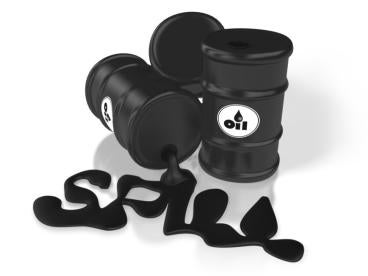A long-running dispute between Chevron and Ecuador appears to have reached its end after the Supreme Court declined to take up Ecuador’s question of whether United States courts had jurisdiction to confirm a $96 million arbitration award in favor of Chevron.
The case arose out of a decades-long contractual dispute between Ecuador and Texaco Petroleum. In the 1970s, the oil giant and the South American country entered into a contract for Texaco to develop Ecuadorian oil fields in exchange for selling oil to the Ecuadorian government at below-market rates. Texaco brought several lawsuits in the 1990s in Ecuador’s courts, alleging that Ecuador violated the terms of the agreement. Chevron acquired Texaco in 2000. Meanwhile, in 1993, Ecuador and the United States had entered into a Bilateral Investment Treaty (“BIT”) under which Ecuador offered to arbitrate disputes with American investors involving investments that existed on or after the treaty’s effective date.
In 2006, Chevron initiated arbitration against Ecuador under the BIT. Chevron claimed that Ecuador violated the BIT’s investment protections by delaying resolution of the lawsuits for more than a decade, leaving the cases to languish indefinitely in Ecuador’s courts. In response, Ecuador asserted that the arbitral tribunal lacked jurisdiction because the BIT had not come into effect until several years after Chevron ended its operations in Ecuador. The tribunal, based at The Hague’s Permanent Court of Arbitration, rejected Ecuador’s argument and concluded that Chevron’s lawsuits against Ecuador were “investments” within the meaning of the BIT. It ultimately awarded Chevron $96 million. Ecuador’s efforts to set aside the award were rejected by three courts at all levels of the Dutch judiciary system.
Chevron’s quest to enforce its award came to the United States in 2012 when Chevron sought to have the award recognized by the District Court for the District of Columbia. The court confirmed the award. Ecuador appealed to the Court of Appeals for the District of Columbia Circuit. Among other arguments, it asserted that, pursuant to the Foreign Sovereign Immunities Act (“FSIA”), the district court lacked jurisdiction to confirm the award and should have instead performed a de novo analysis of whether the dispute was arbitrable under the BIT. Although the FSIA grants foreign states immunity from the jurisdiction of United States courts, the D.C. Circuit held that Chevron had proved that an arbitration exception to the FSIA applied. The court also found that even if it were to undertake a de novo review of arbitrability, Ecuador had failed to prove that the lawsuits did not constitute investments under the BIT. Thus, the D.C. Circuit agreed with the district court and tribunal that Chevron’s lawsuits against Ecuador were investments — and therefore arbitrable disputes — under the BIT. It also upheld the district court’s finding that it was within the arbitration tribunal’s purview to determine the question of arbitrability — that is, to examine whether the dispute was subject to arbitration. Finally, the D.C. Circuit agreed with the district court that the parties had clearly and unmistakably contracted for the tribunal to decide questions of arbitrability. The court therefore affirmed the district court’s confirmation, noting that four separate courts had already rejected Ecuador’s argument that Chevron could not avail itself of the BIT’s arbitration clause.
Yet another court joined those ranks on June 6 when the United States Supreme Court denied Ecuador’s petition for writ of certiorari. As a result of the denial, Chevron’s arbitration award will stand. With interest, the award has now climbed to $106 million.




 i
i


